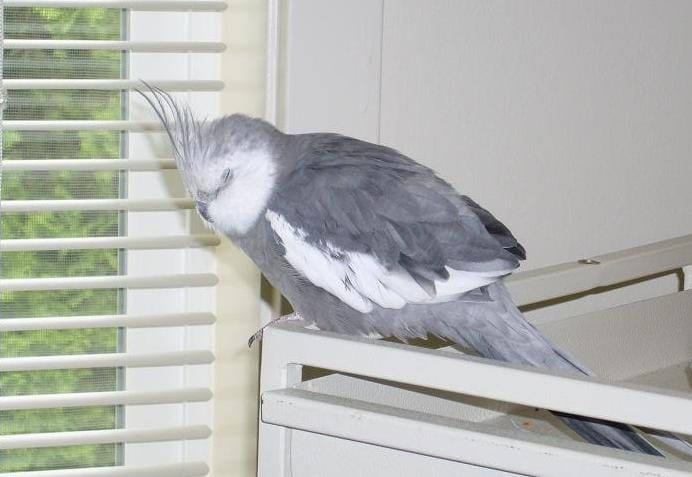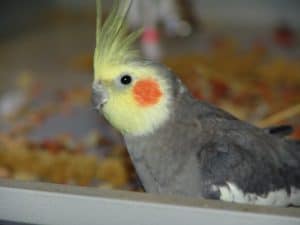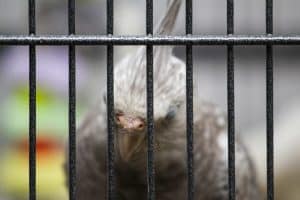Caring for an older cockatiel is a journey filled with special moments and unique challenges. As your feathered friend enters its golden years, you’ll notice changes that require adjustments in care to keep them happy and healthy. Whether you’re a seasoned bird owner or new to the avian world, understanding how to take care of an older cockatiel is essential for enhancing their quality of life.
From dietary tweaks to adapting their living environment, each step you take makes a significant difference. You’ll learn not only about the best foods to maintain their health but also how to modify their habitat to suit their aging needs. Dive into the world of senior cockatiel care and discover how you can make their later years as comfortable and joyful as possible.
Understanding Older Cockatiels
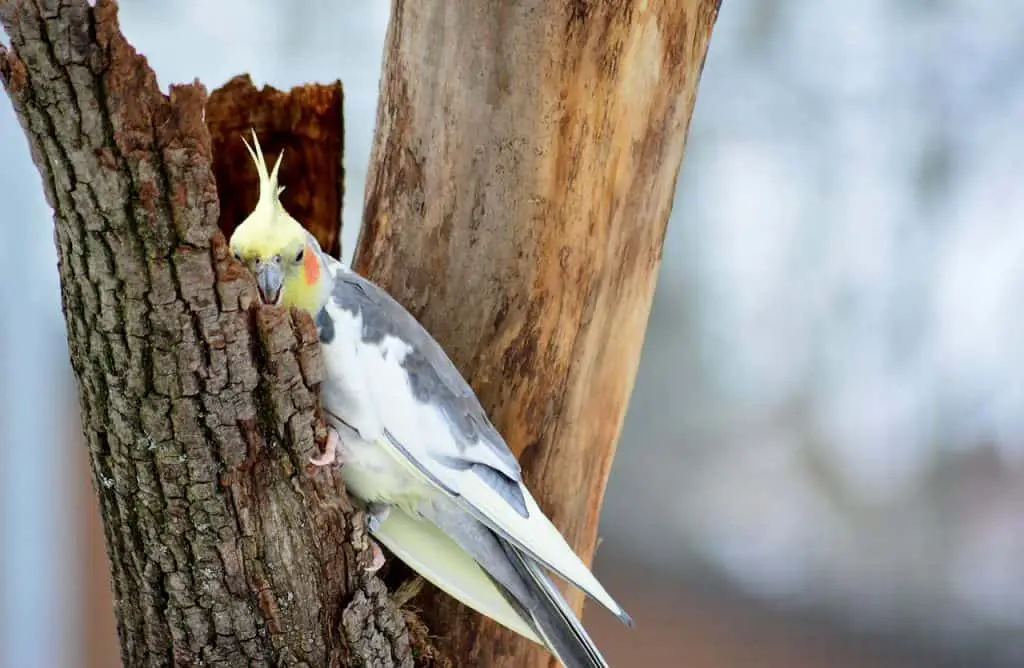
As your cockatiel enters its golden years, recognizing and accommodating its changing needs is key to ensuring a comfortable and joyful life. Aging in birds, just like in humans, comes with its set of challenges and observable changes.
Signs of Aging in Cockatiels
Older cockatiels often exhibit distinct signs that may indicate they’re aging. You might notice that your bird’s energy levels are dropping, leading to more time spent resting rather than engaging in active play or flying. Their feathers may lose some of their luster, and moult might occur more frequently. Moreover, changes in vocalization patterns could occur; your once chatty cockatiel may become quieter or its calls might sound different. Additionally, an older cockatiel’s eyes might not be as bright as they once were, showing signs of cloudiness which is typical as they age.
Common Age-Related Changes
As cockatiels age, they undergo several physiological and behavioral changes. The efficiency of their organ systems, such as the liver or kidneys, might decrease, which can influence their overall health. To support them during these times, adjusting their diet is essential, perhaps incorporating lower-fat seeds and more easily digestible foods.
Older birds also tend to develop arthritis, which makes movement painful or difficult. You’ll notice they might struggle with climbing or might prefer staying low to the ground rather than perching high up. To accommodate this, you can lower perches in the cage and ensure there are ample soft landing spaces to prevent injury.
Optimal Diet for Aging Cockatiels
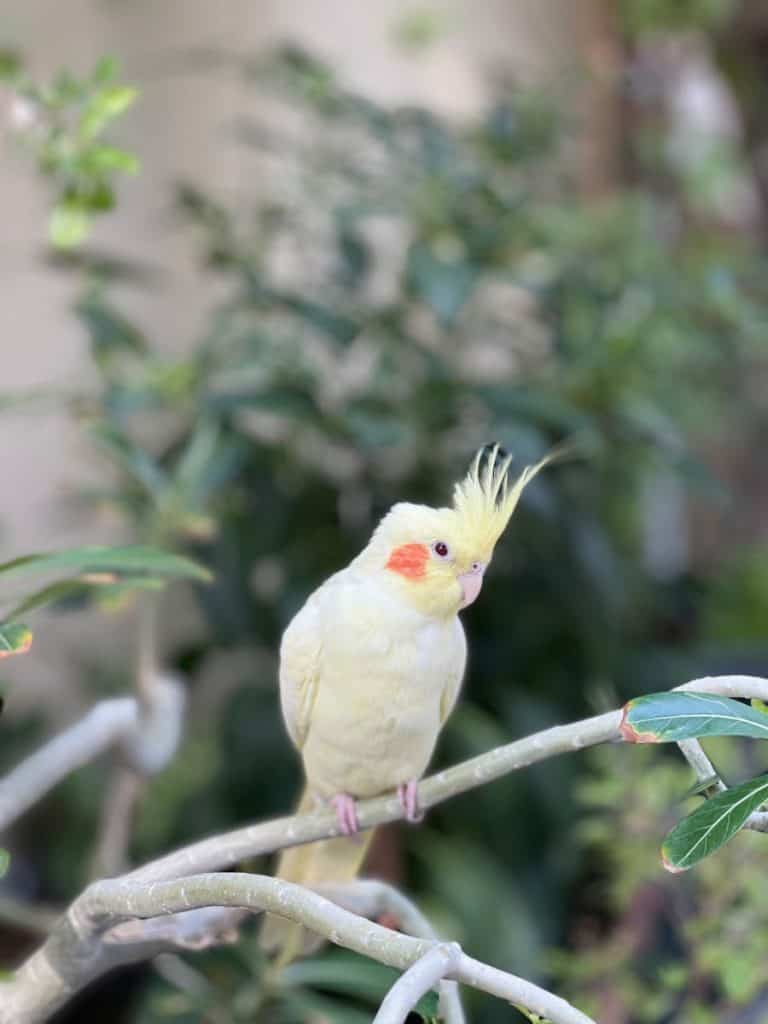
As your cockatiel ages, its dietary needs evolve, necessitating adjustments to maintain its health and vitality. An optimal diet aids in managing age-related changes and supports overall well-being.
Nutritional Needs of Senior Cockatiels
Senior cockatiels benefit from a balanced diet rich in vitamins and minerals to counteract the declining organ efficiency often seen with age. Your older cockatiel needs less fat and more fiber to aid digestion and prevent obesity, a common concern in less active birds. Proteins remain crucial but should come from easily digestible sources to ease the workload on the kidneys and liver. Incorporating foods with anti-inflammatory properties can also help manage arthritis, which is prevalent in older cockatiels.
Recommended Food Types and Supplements
The dietary regimen for your aging cockatiel should consist of a variety of foods to ensure a balanced intake of nutrients. Offer a mix of high-quality pellets designed for senior birds, as these are formulated to provide the essential nutrients required in the right proportions. Fresh fruits and vegetables are indispensable, supplying necessary vitamins and antioxidants. Examples like cooked sweet potatoes and leafy greens like spinach contribute vital nutrients without excessive calories.
Supplements play a crucial role, especially calcium and Vitamin D3 to support bone health, and a probiotic to aid digestion. Consult your vet for the best choices tailored to your bird’s specific health needs. Avoid high-fat seeds such to ensure a well-rounded diet that catimonors weight and enhances feather quality.
Creating a Comfortable Habitat
After learning how to adjust the diet for older cockatiels, you should create a comfortable and safe habitat tailored to their needs. They require specific conditions that allow them to lead a healthy and stress-free life as they age.
Choosing the Right Enclosure
The size and design of a cage play a pivotal role in your older cockatiel’s quality of life. Ensure the cage is spacious enough to accommodate their wingspan, which generally requires a minimum size of 24 inches by 18 inches by 24 inches. The bar spacing should be no more than 1/2 inch apart to prevent injuries. Opt for a cage with multiple doors, facilitating smoother and safer interactions when handling your cockatiel. Additionally, the inclusion of horizontal bars on the cage walls helps older cockatiels climb and exercise more effectively, strengthening muscles and enhancing mobility.
Adjustments to Bedding and Lighting
Bedding in the cage should be kept clean, non-toxic, and easy to change, promoting good hygiene and reducing the risk of respiratory issues. Paper-based products or aspen wood shavings make excellent choices as they are absorbent and dust-free. It’s crucial to avoid cedar or pine shavings, which can emit harmful fumes potentially affecting your bird’s respiratory health.
Proper lighting not only helps maintain your cockatiel’s natural circadian rhythm but also plays an essential role in their overall well-being. Ensure their enclosure is positioned in a way that provides a good balance of natural daylight and shade. Use full-spectrum bird lamps to complement natural light, especially during shorter winter days, aiming for about 12 hours of light daily. This prevents disorientation and stress, supporting a stable and comfortable environment for your aging pet birds.
Health Care for Older Cockatiels
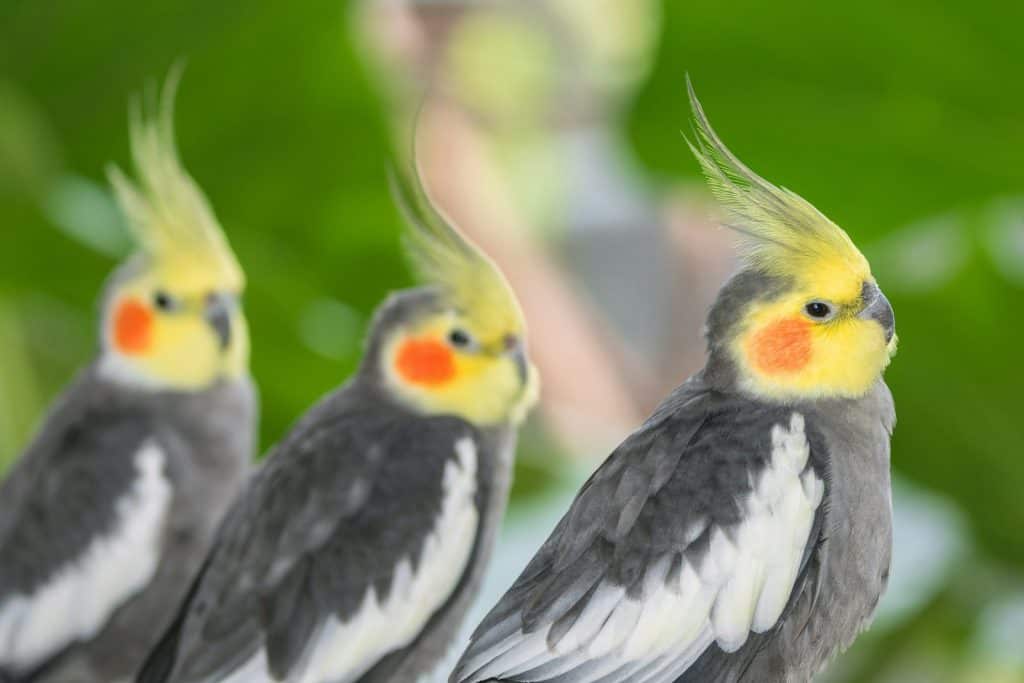
As your cockatiel ages, maintaining its health becomes even more crucial. Recognizing that changes in diet and habitat lay a robust foundation, it’s equally important to focus directly on health care practices to ensure vitality in your bird’s golden years.
Regular Veterinary Visits
Regular check-ups are key to keeping older cockatiels healthy. Experts recommend semi-annual veterinary visits for birds over six years old, as aging can bring about subtle health shifts that aren’t always obvious.
During these visits, a vet might conduct a physical examination, blood tests, and other diagnostics like X-rays to check for any internal issues, ensuring any signs of diseases, such as liver disease, are caught early. Additionally, these appointments provide a great opportunity to discuss nutritional adjustments or behavioral changes with your vet.
Recognizing Health Issues Early
Staying vigilant about your older cockatiel’s behavior and physical condition helps in early disease detection, which is critical for effective management and treatment. Watch for signs like changes in eating or sleeping patterns, decreased activity, or altered vocalizations, which can all indicate health issues.
Also, look for physical symptoms such as ruffled feathers, changes in feather condition, weight loss, or discharge from the eyes or nose. If you notice any of these signs, it is imperative to consult your veterinarian immediately to address potential health issues before they progress.
Daily Care Techniques
Taking care of an older cockatiel involves specific daily routines that ensure their health and happiness. Let’s explore effective grooming, hygiene, and interaction strategies tailored for aging birds.
Grooming and Hygiene Essentials
Maintaining the cleanliness of your cockatiel’s living space is crucial to prevent diseases and infections, which are more likely as birds age. First, ensure the cage and food bowls are cleaned frequently using bird-safe disinfectants.
This helps eliminate any potential pathogens and creates a healthy environment for your pet. Next, the grooming of feathers, nails, and beak should be monitored carefully. Trim nails and clean feathers gently but regularly. If you’re unsure how to perform these grooming tasks safely, consult with a vet or a professional bird groomer to prevent injuries, given that older cockatiels can be more delicate.
Interaction and Mental Stimulation
Interaction and mental stimulation play a vital role in the health of older cockatiels. Engage your bird with various activities to keep its mind sharp and prevent the typical age-related behavioral issues. Offering toys designed for mental engagement, like puzzle feeders or interactive bird-safe toys, will not only entertain but also challenge your cockatiel.
Spend time daily interacting with your pet; even simple activities like talking, whistling, or light training sessions using positive reinforcement can greatly enhance their quality of life. Remember, older birds still enjoy and benefit from social interaction, even if they might require a gentler approach as they age.
Comparing Care for Young Birds vs. Older Birds
While caring for an older cockatiel presents unique challenges, it’s beneficial to understand how their needs differ from those of a young bird. This comparison can help ensure you’re providing the best possible care throughout their life stages.
Dietary Differences
Young birds, especially those of parrot species like cockatiels, require a diet rich in protein and fats to support their growth and high energy levels. Foods such as sunflower seeds and millet spray are often staples in their diet due to their high nutritional value and appeal to most birds. However, as birds age, their dietary needs shift. Older birds benefit from a diet lower in fat and higher in fiber to maintain a healthy weight and support digestion. Including more fresh fruits and vegetables and limiting fatty seeds can help manage their health better in their senior years.
Habitat Adjustments
The cage setup for a young bird often includes numerous perches, toys, and climbing structures to encourage activity and mental stimulation. For older birds, modifications are necessary to ensure their comfort and safety. Lowering perches, providing soft landing areas, and ensuring the cage door is easily accessible are important considerations. Additionally, placing food bowls at a comfortable height prevents the need for excessive climbing, which can be strenuous for an older bird.
Health Monitoring and Interaction
Young birds tend to be more resilient and less prone to health issues compared to older cockatiels. Regular playtime and social interaction are crucial for their development. As they age, cockatiels may require more frequent health check-ups to monitor for age-related issues. While interaction remains important for older birds, the nature of this interaction may change. Gentle handling and engaging in less strenuous activities can help maintain their mental and emotional well-being.
The Role of Mental Stimulation in Older Cockatiels
Just like young birds, older cockatiels benefit significantly from mental stimulation. Providing a variety of toys and engaging activities can prevent boredom and associated behavioral problems. Puzzle feeders, for instance, can be a great addition to their cage, encouraging them to forage and think critically.
Incorporating Treats Wisely
Treats like millet spray are loved by most birds, including older cockatiels. However, moderation is key. These treats should be given sparingly to avoid unnecessary weight gain. Instead, focus on healthier treats like small pieces of fruit or vegetables. Ensure that treats do not replace their balanced diet but rather supplement it.
Ensuring Comfort and Ease
For both young and older birds, the cage door should be secure yet easy to operate, ensuring that the bird can be handled safely and comfortably. Older cockatiels may appreciate more time outside their cage to stretch their wings and enjoy a change of scenery, but it’s essential to supervise them closely to prevent accidents.
Wrapping Up: How to Take Care of an Older Cockatiel
Taking care of an older cockatiel involves a multifaceted approach that centers on diet, health care, and daily management. By adjusting your bird’s diet, ensuring regular veterinary checkups, and maintaining a clean and engaging environment, you’ll significantly enhance their later years.
Remember the importance of observing any changes in their behavior or physical condition—it’s key to proactive health management. With these practices in place, you’re well-equipped to provide your feathered friend with a comfortable, stimulating, and loving home throughout their golden years. Keep up the great work and enjoy the rewarding experience of caring for your aging cockatiel.
Other suggested articles:
What Age Do Cockatiels Stop Breeding?
Can a Cockatiel Be Kept Outside?
- How Can Your Other Pets Be Harmful To Your Cockatiel
- How Cockatiels Show Affection
- How Do Children Make Cockatiels As Pets
- How Do Cockatiels See
- How Do Cockatiels Sleep
- How Do Fumes Affect Your Cockatiel
- How Do You Care For Your Cockatiel Everyday
- How Do You Choose A Cage For Your Cockatiel
- How Do You Medicate Cockatiels
- How Do You Provide Your Cockatiel With Water
- How Do You Select Your Cockatiel
- How Do You Tame A Cockatiel
- How Does A Cockatiel Got Her Name
- How Far Can A Cockatiel Fly
- How Far Can A Cockatiel See
- How Fast Can Cockatiels Fly
- How Good Is A Cockatiels Memory
- How Long Can A Cockatiel Go Without Food
- How Long Can Cockatiels Go Without Water
- How Long Do Cockatiels Actually Live For In Captivity
- How Long Do Cockatiels Live In Captivity
- How Long Does It Take For Clipped Wings To Grow Back
- How Long Does It Take For Cockatiel Tail Feathers To Grow Back
- How Long Should A Cockatiel Be Out Of Its Cage
- How Often Do Cockatiels Lay Eggs
- How Often Do Cockatiels Poop
- How Often Should A Cockatiel Go To The Vet
- How Should I Set Up My Cockatiels Cage
- How To Bathe Your Cockatiel
- How To Bird Proof A Room
- How To Bond Two Cockatiels
- How To Bond With A Scared Cockatiel
- How To Build Trust With A New Cockatiel
- How To Calm A Stressed Cockatiel
- How To Care For Your Cockatiels Health
- How To Care For Your Cockatiels Nails
- How To Catch A Cockatiel
- How To Clean Cockatiel Nose
- How To Clip A Cockatiels Nails
- How To Discipline A Cockatiel
- How To Find A Cockatiel That Flew Away
- How To Get A Cockatiel Back Into Its Cage
- How To Get A Cockatiel To Go On Your Hand
- How To Get A Cockatiel To Like You
- How To Get A Cockatiel To Sit On Your Finger
- How To Give Your Cockatiel Exercise
- How To Grow Millet For Cockatiels
- How To Hold A Cockatiel
- How To Introduce A New Cockatiel To Another
- How To Keep A Cockatiel Quiet
- How To Keep A Cockatiel Warm 10 Tips And Tricks
- How To Maintain A Clean Cockatiel Cage
- How To Make Your New Cockatiel Feel At Home
- How To Manage Multiple Cockatiels In One Household
- How To Monitor Your Cockatiels Health
- How To Prepare Your Cockatiel For Travel
- How To Prevent Your Cockatiel From Becoming Stressed
- How To Recognize And Treat Cockatiel Anxiety
- How To Take Care Of An Older Cockatiel
- How To Tame A Cockatiel That Bites
- How To Tame Your Cockatiel
- How To Teach A Cockatiel To Talk
- How To Tell If A Cockatiel Is In Pain
- How To Tell The Age Of A Cockatiel
- How To Toilet Train Your Cockatiel
- How To Train A Cockatiel To Fly To You 8 Steps
- How To Train A Cockatiel To Poop In One Place
- How To Train Naughty Cockatiels
- How To Transition Your Cockatiel To A New Cage
- How To Transport A Cockatiel To The Vet
- How To Trim A Cockatiels Beak
- How To Trim Your Cockatiels Wings
